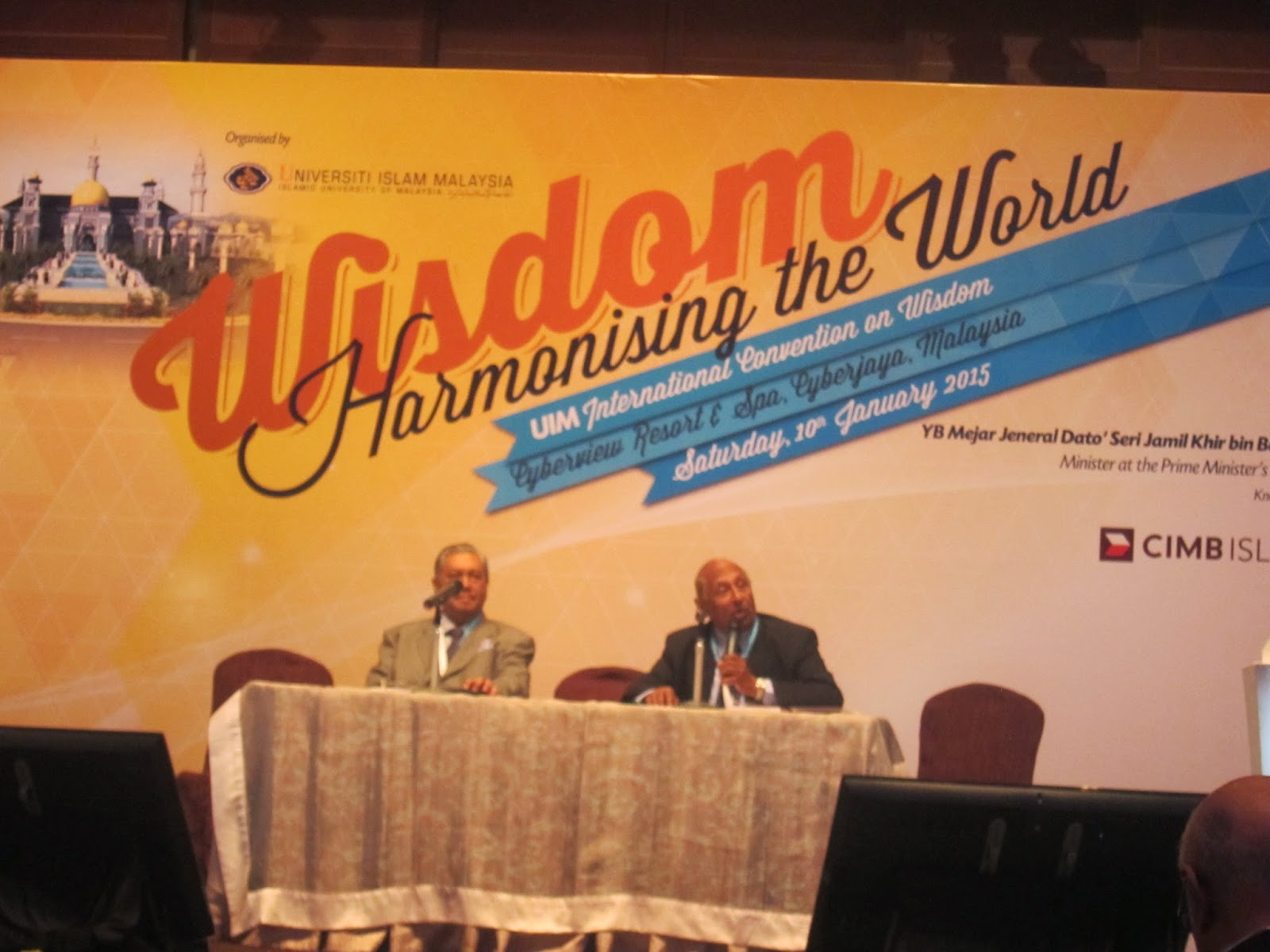1. Introduction. The lecture by HE Yukiya Amano, Director General of the International Energy Agency (IAEA) was delivered today (Tuesday 21 January 2015) at Hall A Putrajaya International Convention Centre (PICC) attended by an estimated 200 delegates principally representing the agencies under the Ministry of Science, Technology and Innovation (MOSTI). It was organised jointly by MOSTI, the Academy of Science Malaysia, Atomic Energy Licensing Board (AELB) and Malaysian Nuclear Agency as part of the program of the official visit of the IAEA CEO to the country. In the welcoming remarks, Y Bhg Dato' Seri Dr. NoorulAinur Mohd. Nur, the Secretary General of MOSTI expressed thanks to IAEA for having provided assistance in the utilization of nuclear technology in the fields of health, agriculture, industrial development covering electrical, gas & oil industries; and green technology. Malaysia is exploring the possibility of nuclear energy for its energy supply. She looked forward to continued cooperation and assistance with IAEA.
The lecture was moderated by Dr. Mohd Zamzam Jaafar , CEO of Malasia Nuclear Power Corporation (MNPC) and in introducing the speaker highlighted that HE Yukiya was a graduate of the Faculty of Law, Tokyo University, joined the Japanese Foreign Ministry and served in many countries and held various senior positions in the Japanese Government before assuming his duties as IAEA Director General starting in December 2009.
The imposing PICC this morning where the lecture was held

HE Yukiya Amano at the rostrum delivering his lecture

At the VIP table with the speaker were Y Bhg Dato' Seri Dr. Noorul Ainur Mohd Nur and Dr. Mohd Zamzam Jaafar CEO of MNPC
A section of the attendees
With (from left) Nor Hasnah from Nuclear Malaysia and Y. Bhg Dato' Dr Ho of the Academy of Science Malaysia
2. Content of the Lecture. HE Yukiya introduced IAEA as an intergovernmental organization established in 1957 and based in Vienna, Austria that serves as the global centre for cooperation in nuclear applications, energy, science and technology and operates with member states and other stakeholders to promote safe, secure and peaceful nuclear technologies and prevent the proliferation of war. It promotes development through the utilization of Nuclear Energy. He highlighted that the peaceful uses of nuclear technologies in the following areas:
a. in medical health as diagnostic tools and treatment of cancer and other diseases
b. in agriculture particularly in mutation breeding
c. in food preservation through irradiation. The shelf life of fruits such as papaya and pineapple is enhanced. He cited the example how the Malaysian Government has provided central irradiation facilities so that smallholders can use them to irradiate fruits such as durian for export and suggested that Malaysia may wish to share such expertise with other countries
d. in water management
d. in water management
e. in industries such as energy, gas and oils
f. in sustainable development where nuclear
technology is being used to monitor marine pollution and carbon dioxide emission
He elaborated that it is in the medical services that
nuclear technologies are making their enormous contributions. Radiotherapy has
saved many lives of cancer patients. An estimated one million people in the
world died each day of this disease. Nuclear technology is also being
used to diagnose patients suspected of being infected by Ebola virus disease
which speeds up the diagnosis, which under normal analytical process takes four
days, to four hours. The irradiation male sterility techniques in tsetse
fly and mosquito facilitated in the control of sleeping sickness and dengue
fever, in the tropical region.
3. Q & A Session. In my remark
during the session, I indicated that much still needs to be done in humanizing
and educating the public in Malaysia creating higher awareness particularly on
the safety aspect of nuclear energy. The Russian Chernobyl and the
Canadian Third Mile nuclear mishaps are still not forgotten and the more recent
Fukushima Nuclear Plant incident gave the impression that nuclear plants are
hazardous to lives, though actually no life was actually lost in this disaster.
The Lynas issue almost aborted the development of the rare earth industries in
the country due to concern on radiation and waste management. The safety
of nuclear technology appeared to be the main concern as many of the other
participants who spoke raised this issue. HE Yukiya emphasised again that
nuclear safety is utmost in the consideration for the utilization of nuclear
related technologies and that each country that plans to establish a nuclear
plant needs to prepare thoroughly its implementation . The biggest
hindrance to a much wider use of nuclear energy is the handling of waste,
though according to him, there exist in the Scandinavian countries such as
Sweden and Finland, depository for even high level nuclear wastes.
In spite of the concern there are now 45 existing nuclear plants in the
world with 73 currently under construction.
Souvenir and presentation memento to the speaker
Posted on Saturday 24/1/2015
Appreciate comments on the article and this blog by communicating with my email:
hashim.abdulwahab@gmai.com












